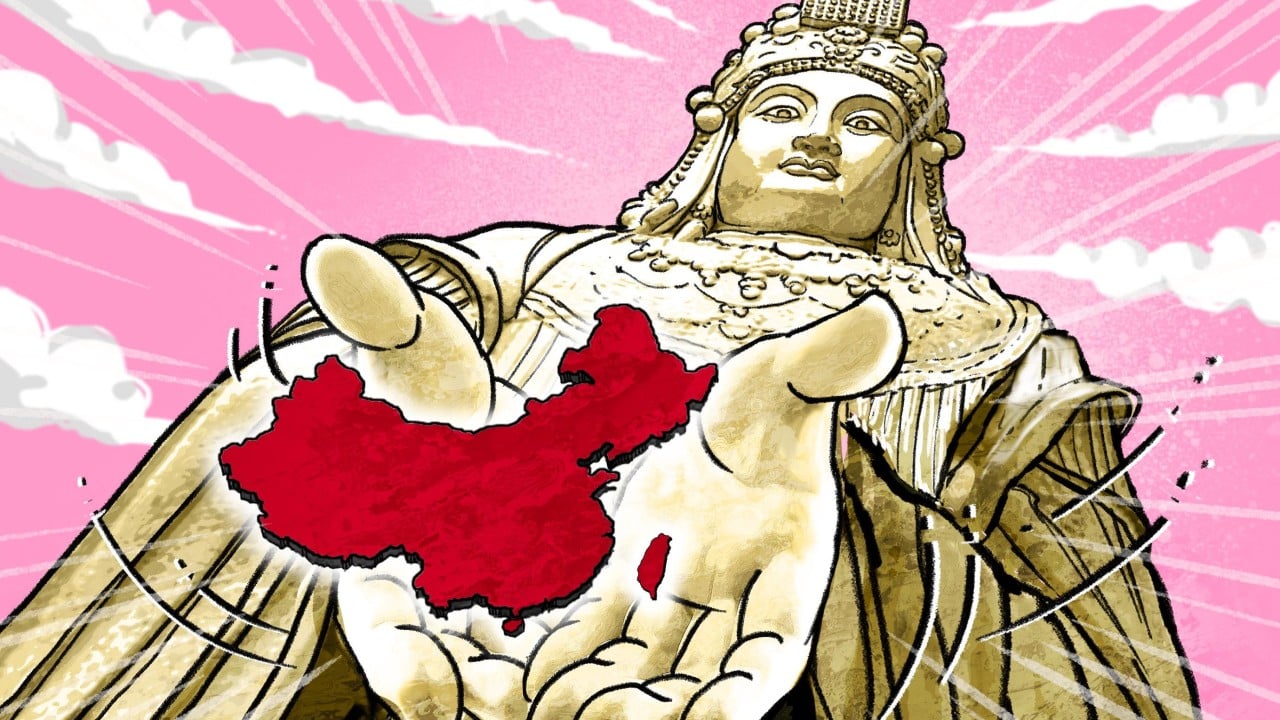Fujian province has become a test bed for mainland China’s push for economic, social and political integration with Taiwan. In this story – the last in a four-part on-the-ground series – Amber Wang looks at the sea goddess revered on both sides of the Taiwan Strait.
Advertisement
Chinese President Xi Jinping and Taiwanese leader William Lai Ching-te may disagree on a long list of issues – from politics to economics and history – but both place great value on Mazu, the sea goddess venerated on both sides of the Taiwan Strait.
Since the 1990s and his days as governor of Fujian, the mainland province directly facing the island of Taiwan, Xi has repeatedly hailed the political and economic values represented by Mazu culture.
During his governorship, Xi allocated 2 million yuan (US$274,000) for a public square on Meizhou – the small island near the coast where the woman behind the Mazu legend was born – “so that more Taiwan compatriots will come”.
Meanwhile Lai, from Taiwan’s independence-leaning Democratic Progressive Party (DPP), has described himself as a Mazu devotee from childhood who frequently prays in her temples for Taiwan’s “stability”.
Advertisement
Lai, whom Beijing regards as a dangerous separatist, also chose a Mazu temple as the venue for a speech delivered during his campaign for the leadership in September 2023, in which he called for peace with the mainland.
Despite the shared admiration of Mazu’s qualities – the goddess attracts more than 200,000 visitors from Taiwan to Fujian’s Meizhou Island each year – she has also lately become a source of cross-strait tension.

